How these guerrilla gardeners are reclaiming urban spaces to grow food
“Growing your own food is like printing your own money.”
This has become American artist-designer Ron Finley’s gospel ever since he converted South Central LA’s ‘food desert’ into a ‘food forest’. In an area where food was a problem, he made it a solution by converting patches of wasteland into vegetable gardens.
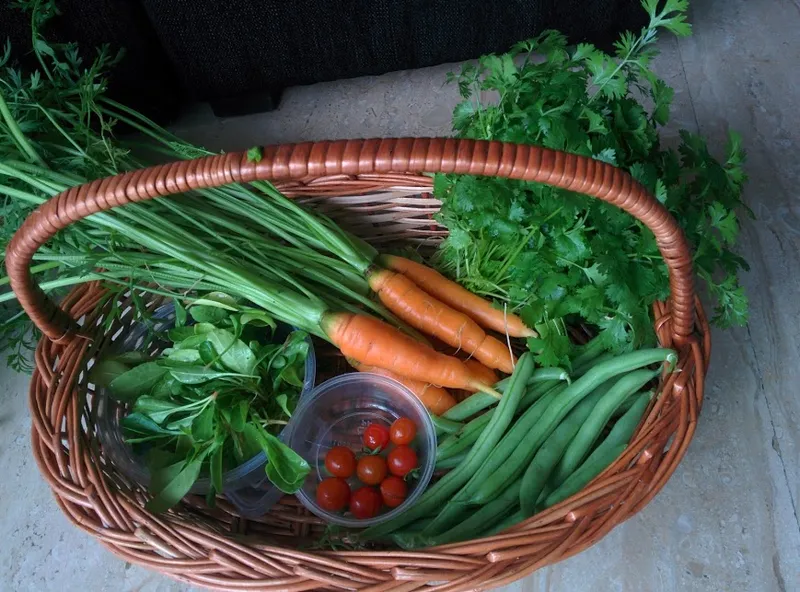
Ron, who refused to be part of a “manufactured reality” where only fast food was in abundance and fresh food counters empty, flipped the problem on its head. He is making gardening “sexy”. In an inspired talk on TED, he said,
“So I want us all to become ecolutionary renegades, gangstas, gangsta gardeners. We gotta flip the script on what a gangsta is. If you ain't a gardener, you ain't gangsta. Get gangsta with your shovel, okay? And let that be your weapon of choice.”
Ron goes on to say, “Growing one plant will give you 1,000, 10,000 seeds. When one dollar's worth of green beans will give you 75 dollars' worth of produce. It's my gospel, when I'm telling people, grow your own food. Growing your own food is like printing your own money.”
In another part of the world, B. Narayan Viswanath was flying from Delhi to Bengaluru. It was 1995. His plane was unable to land and it kept circling the city. “I could see all the rooftops shining in the afternoon sun. It looked all concrete from up there,” he tells me over the phone.
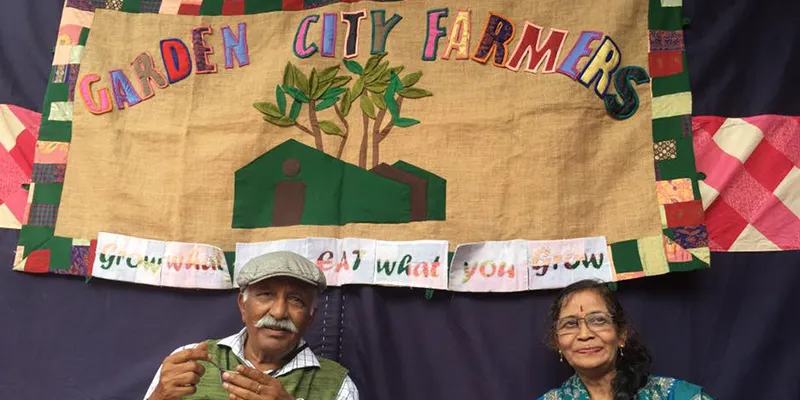
Vishwanath, now 75, says, “Bangalore was not known as Garden City because of Cubbon Park and Lal Bagh. It was so named because every house had a garden, however, small. There was a garden in the front and a kitchen garden in the rear of the house. I decided to bring the kitchen garden to the rooftops.”
What started as an experiment in Bengaluru has now grown into a vibrant movement all over the country. He says,
“Since we started, one of the most significant changes that I have seen is that in the early years I would get retired people and housewives volunteering to start their own kitchen garden. After 2005, I have witnessed more and more young people, IT professionals, doctors, and engineers who are taking up urban gardening with a vengeance.”
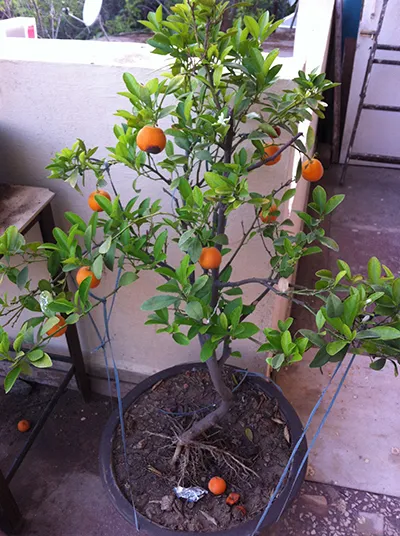
An entomologist by profession and an authority in bio-fertilisers, Vishwanath organised a group for urban farmers in 2011. This group has branched out in different cities with people starting their own efforts to get city folks to grow their own food. Slogans like ‘Grow what you eat, eat what you grow,’ ‘Grow food, not lawns,’ are spurring people to say no to pesticide-laden supermarket fruits and vegetables.
His Facebook group Organic Terrace Gardening has nearly 30,000 people and counting. Oota from your Thota (food from your garden), an initiative started by Vishwananth in Bengaluru, draws hundreds of urban farmers to share, barter, and sell produce that they grow at home.
“There’s no better joy than eating a salad made from tomatoes in your kitchen garden,” says the status of an enthusiastic gardener. In their bid to experience this happiness, these urban gardeners are not letting even their tiny balconies come in the way. They use containers, boxes, sinks, even bathtubs to grow a variety of vegetables and fruits.
Like city pigeons, which have adapted to the steel structures of cityscapes to build nests, these urban farmers are giving hustle a different meaning altogether.
Manikandan Pattabiraman
Manikandan is a techie-turned-urban farmer. The Internet calls him the ‘Geek Gardener’. He gave up a lucrative career to take up urban farming in 2013. He had started a blog earlier to provide information of gardening and equipment that he later turned into a business. He regularly conducts training on terrace gardening in the Dept of Horticulture, Bio Centre, Hulimavu, in Bengaluru, as well as for apartments and corporates.
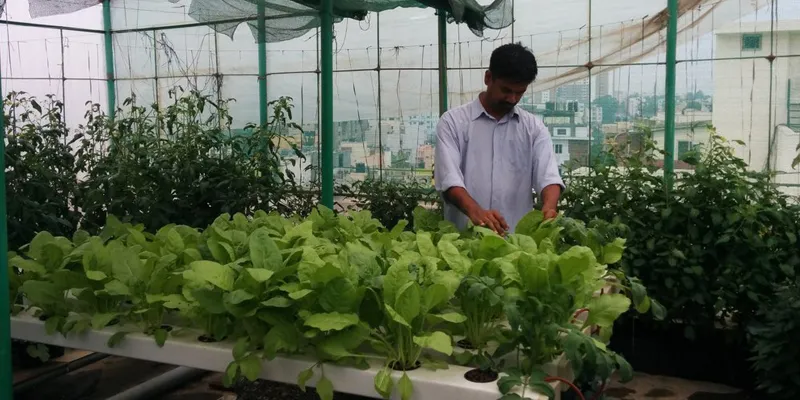
I grow…
…almost all vegetables, salad greens, and even fruit trees such as banana, papaya, guava, and lemon on my rooftop. I stay on the sixth floor in an apartment in Bengaluru.
I started my kitchen garden…
My first kitchen garden was during my third grade. After my education and career, I decided to start it again. This time, not just gardening but also blogging about it. I started my blog in 2008.
The time and money I spend on my garden…
Gardening is my passion and it has now become my career too. I spend most of my time (that was the idea also) in gardening-related activities. I spend about 30-90 mins daily in my garden. When I started my garden, I actually spent very little. Less than Rs 5,000.
I would love to say that all my vegetable needs come from my garden. But no. I get some vegetables completely from my garden and some we buy outside. I don't buy spinach, tomato, and lettuce ever. I grow the following: capsicum, chillies, cabbage, gourds, cucumber, papaya, and lemon.
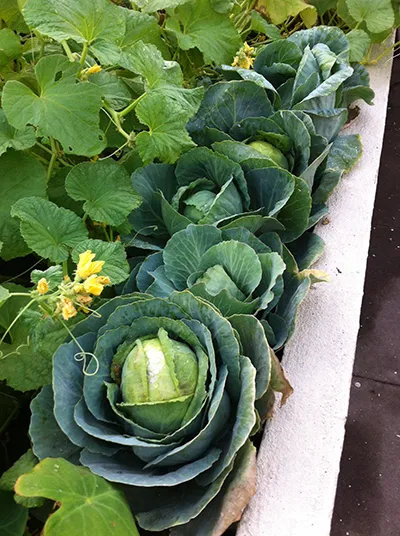
Sharing my abundance…
I have not bartered with other urban farmers, but I have often shared. I usually use my produce to inspire them to take up vegetable gardening on their rooftop. It has always worked!
My tips to start a kitchen garden...
Just start. We all have a habit of analysis paralysis. In an attempt to do it right, we never do it. Kitchen gardening is no exception. Just starting a small garden even if it is just a square foot, is good enough. It will teach you a lot about gardening.
Start with fast growing veggies such as spinach, methi, radish, beans etc. This will not only give you harvests in 30-40 days but also gives you lot of confidence in your gardening journey.
I take the help of technology in my farming efforts…
Being a techie helps me stay abreast with the latest trends. Systems such as hydroponics and aeroponics solve a lot of problems when it comes to urban farming. They save a lot of water (almost 50-75 percent). For a city-dweller like me, water is precious. I reuse all the water that I use to water my plants. Technologies such as hydroponics and aeroponics help me achieve that.
We are also working on automating many aspects of gardening and as a result, one can expect solutions on IoT for plants.
My farm does not stop me from travelling…
Watering is taken care by drip irrigation and most of my systems don't need daily maintenance. If I am out of town for a long duration, I have a friend look at it once or twice.
One significant way life has changed for me after I took to kitchen farming…
Among several things that have changed for me, the main thing I can say for certain is my career. I left the IT industry and moved to urban farming entirely. This actually changed my life. I get to meet great people from a variety of backgrounds. It kind of opened up a whole new world of opportunities to wake up to.
Vani Murthy
“How does one become a butterfly? You must want to fly so much that you are willing to give up being a caterpillar.”
This quote by Trina Paulus posted on Vani Murthy’s Facebook post says it all. She is the queen of solid waste management. “I was never into gardening. My first love was solid waste management,” she says. Producing ‘black gold’ in form of compost, Bengaluru-based Vani got lured into starting her own terrace garden. A lover of the humble earthworm, she’s a warrior when it comes to propagating the message of waste management.
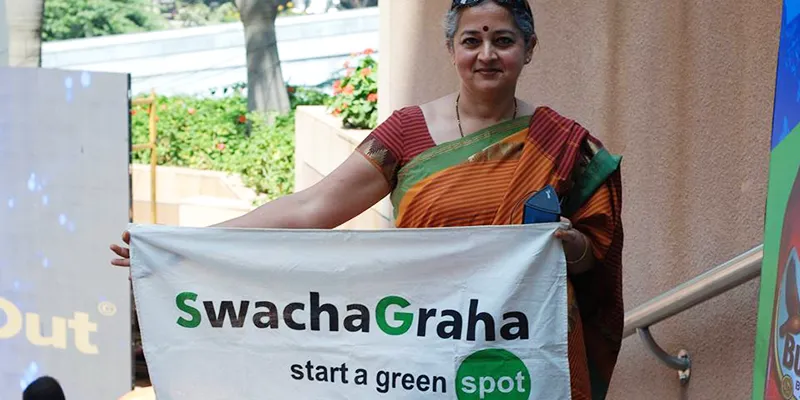
This is where I grow…
I live on the third floor of my apartment and have two balconies and one terrace. I have an edible garden that I started in 2010. I grow many types of vegetables, herbs, and medicinal plants.
I love to spend time pottering around…
I don't calculate the amount of money or time spent in my garden as I believe that growing safe food is an important life skill and it keeps me close to nature. But I spend anytime I can spare in my kitchen garden. I don't have a mali (gardener) and I take care of all the plants and work that goes with it by myself.
Not possible to grow all my needs in urban spaces…
I source vegetables and fruits that are safe to eat from farmers whom I trust because it is not possible to grow all your needs in urban spaces.
I barter…
I do save seeds and barter them. But I don't have any excess produce from my own kitchen garden to barter with friends.
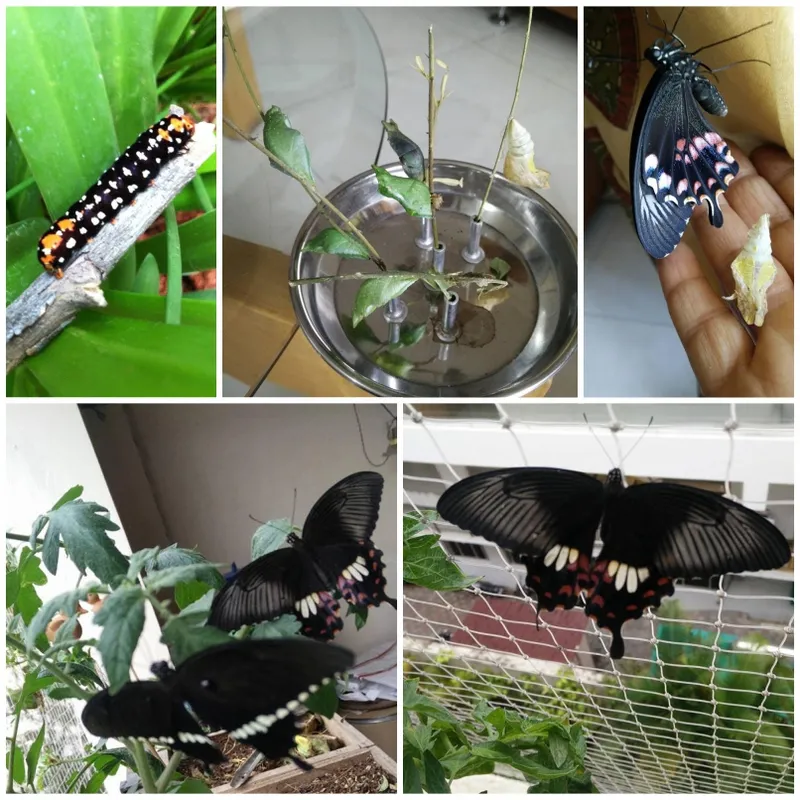
My tips to start a kitchen garden…
You should understand that food has to be grown in a living soil and the living soil needs organic matter. That comes from composting kitchen waste like peels and other leftovers. Start small with a few containers, join organic terrace gardening groups on Facebook for an amazing experience of learning through sharing.
I stick to natural farming…
I use cow dung, cow urine, panchagavya, Jeevaamruta and home-made compost with ample diversity is my practice.
One significant way life has changed for me after I took to kitchen farming…
It keeps me grateful, happy, and peaceful all the time. It is my meditative space.
Nina Poddar
On a holiday to Sikkim, which has been declared the organic state of India, Nina stayed with local families in a homestay. “Whenever I enquired what was being made for lunch or dinner, our hostess replied, ‘Whatever comes out of the garden!’ The freshness of the fruits and veggies, and the wonderful feel of harvesting your own produce inspired me,” says Nina.
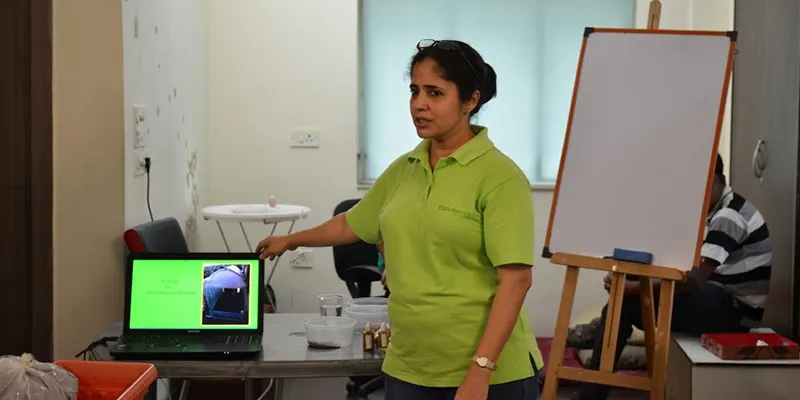
Besides starting her own terrace garden in Kolkata, where she lives, Nina started a venture, Jaivikaran, to help others like her grow their own kitchen garden.
How I came to grow a kitchen garden…
I spent a year or so getting trained in various methods of farming at Pune and Singapore, but I found the systems to be either too traditional, which was backbreaking, or too modern and mechanical and very, very expensive. I wanted a solution suited to urban lifestyles, and finally, we developed a product that is very easy to maintain and one can be a proud owner of an organic kitchen garden on a balcony or even a ledge in the living rooms, terraces or rooftops or land in and around the cities.
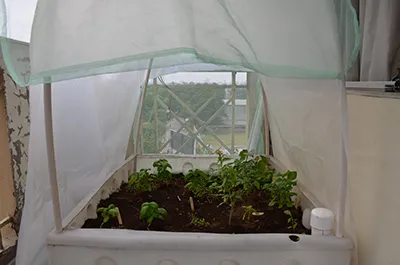
Produce is generating money for some…
One of our customers has lots of aromatic Thai basil and she has started supplying it to a pizza counter.
Tips to start a kitchen garden…
A will to learn and some patience are most essential.
Some techniques that I use…
Water is added into a pipe, and there is an inbuilt reservoir which allows the plants to take in water when required. We are using a mix of old and new techniques - on the flip side we are using the old means of providing nutrition to plants - we source our growth promoters and organic pest preventers from the villages using cow dung, cow urine, and neem etc.
One significant way life has changed for me…
Working with nature makes me feel refreshed and has helped me contribute in keeping our planet green… Like I've created something! I look forward to each morning, eager to see what’s new in my kitchen garden. Till date, every time I see a ladybird or a butterfly in my kitchen garden, my heart lifts with joy!
Meenakshi Arun
Meenakshi works in the IT industry but is an urban farmer at heart. "My interest in gardening started young - my mother and grandmothers all had exceptional green thumbs. I spent most summer vacations with them, and loved to help them dig, prune, climb trees and eat fruit fresh off the trees!
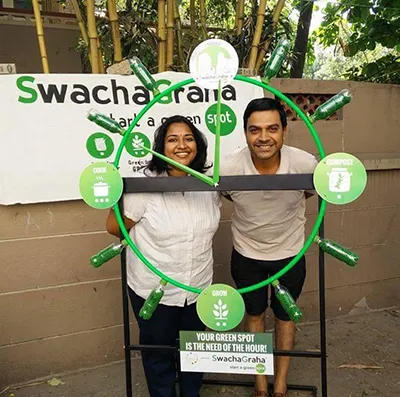
I now live in an independent home…
I garden in about 1,900 sqft, spread around the house. We grow 90 percent of our kitchen vegetable and herb needs, most fruits (lime, guava, pomegranate, banana, strawberries, kumquats, passion fruit) and lots of flowers that attract pollinators to the garden. The garden is about 80 percent ground and 20 percent containers.
I started my garden in an apartment…
Back in 2002, I was living in an apartment. I started growing curry leaves, lime, pudina (mint), some greens, chillies back then in containers, but never focussed on vegetables. There was a stage when we had almost 200 pots on the terrace of our apartment.
The time and money I spend on my garden…
I spend about 30 minutes daily to check all our plants and observe what they need and of course harvest for our daily meals. On weekends, my husband and I plan the big tasks, including any weeding or cleaning up, staking and trellising, sowing, feeding etc.
Expenditure is mainly animal manure, vermicompost and neem powder, panchagavya etc., which cost an average of Rs 1,500 every three months as we usually buy in bulk. Once a year, we incur a few days' expense to hire help to do some heavy cleaning and turning, maybe about Rs 2,000. On and off, seeds, that annually cost about Rs 500. I mostly use open pollinates seeds saved by me or trusted gardeners these days. I'd say the initial set-up could take between Rs 10,000 – Rs 1,00,000 depending on what scale you set up but after that, organic gardens and natural methods really don't cost much. The rewards are, of course, priceless.
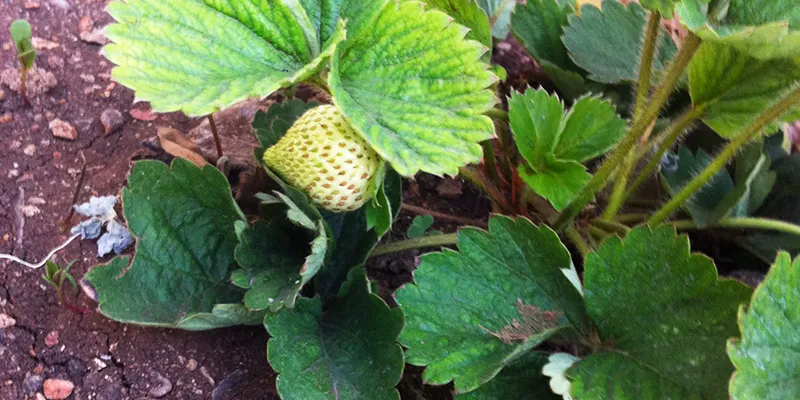
I barter with other kitchen garden owners…
When there is an opportunity, yes for sure! We have a couple of neighbours who also grow vegetables and fruits organically. We share produce with each other or sometimes the final cooked dishes! We have been discussing options to plan our kitchen gardens together so that we use space optimally. This kind of collaboration is very good. Even apartment dwellers can come together and have one person grow tomatoes, one person greens etc., and then share to get a better crop.
Tips to start a kitchen garden…
I always recommend to new gardeners to start slow, start with easy veggies like greens, tomatoes, chillies and a few herbs like curry plant, mint, and coriander. While the ideal state is to encourage open pollinated seed varieties and seed saving, for a beginner, and for small space growers, hybrid seeds will probably make more practical sense. These are usually disease-resistant and have higher yields - that helps the newbie to have to manage less unknowns and get motivated in their gardening journey. Patience is also of the essence - understanding each plant needs and nurturing it accordingly, making your peace with pests and their predators, proactive management of nutrition are all very important for long-term success in urban farming.
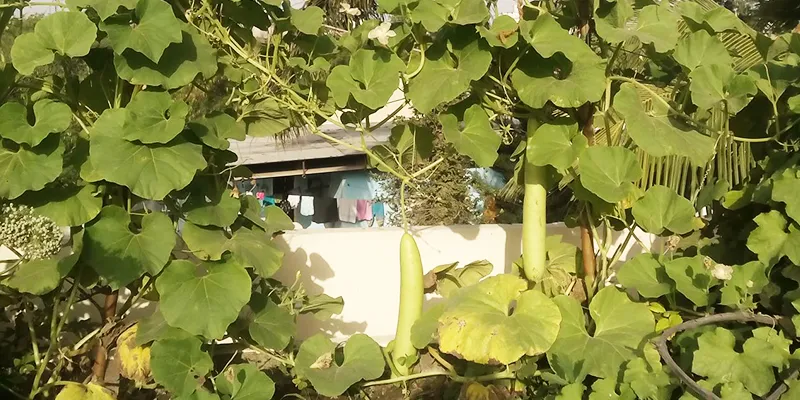
One significant way life has changed…
I'd say the whole cycle of managing your waste responsibly, recycling, composting, growing and cooking completely changes your outlook. You tend to automatically reduce and strive for minimalist living. You start looking at your waste like it's more a treasure than gold!






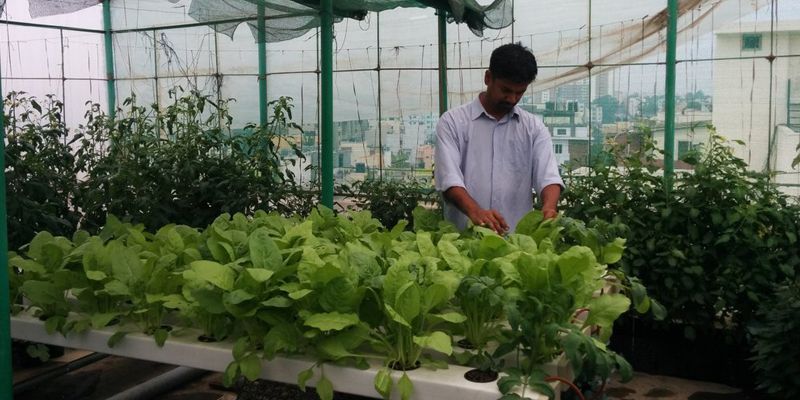



![[Techie Tuesday] From Microsoft and Google to using her skills for the unbanked — journey of Natasha Jethanandani of Kaleidofin](https://images.yourstory.com/cs/2/604090802d6d11e9aa979329348d4c3e/TTFeaturedimage-1597682288366.png)
![[YS Learn] How DealShare’s MVP ensured 30k customers in 20 days of launch](https://images.yourstory.com/cs/2/a9efa9c02dd911e9adc52d913c55075e/oieS1ZsITvDzlTz-1597649353128.jpg)